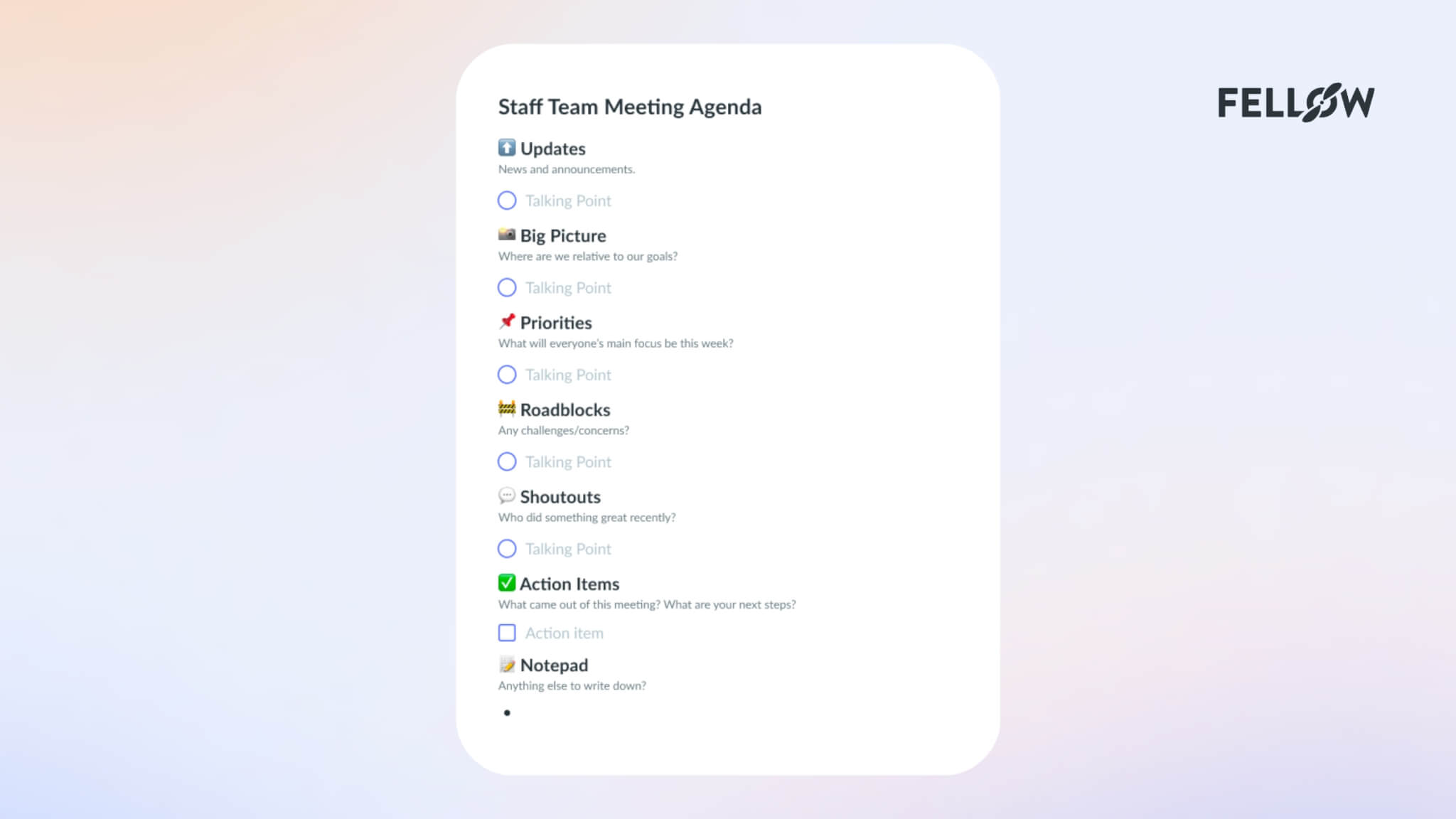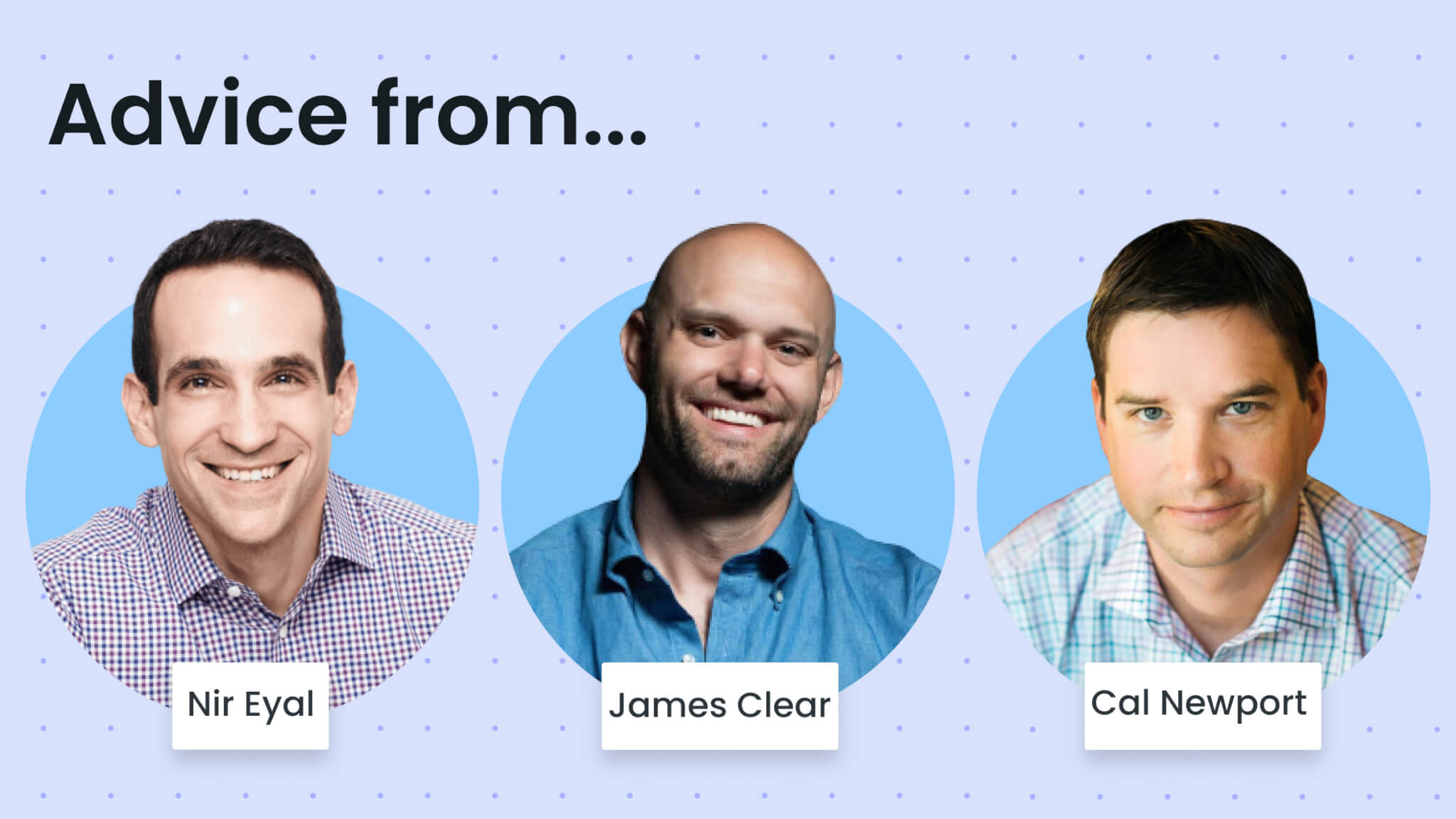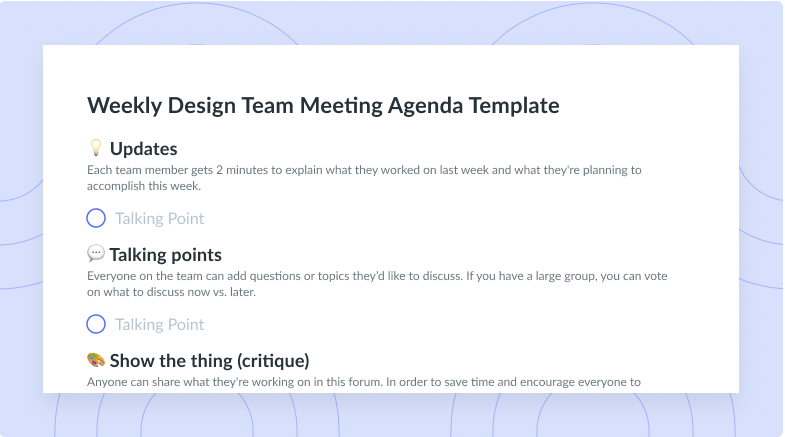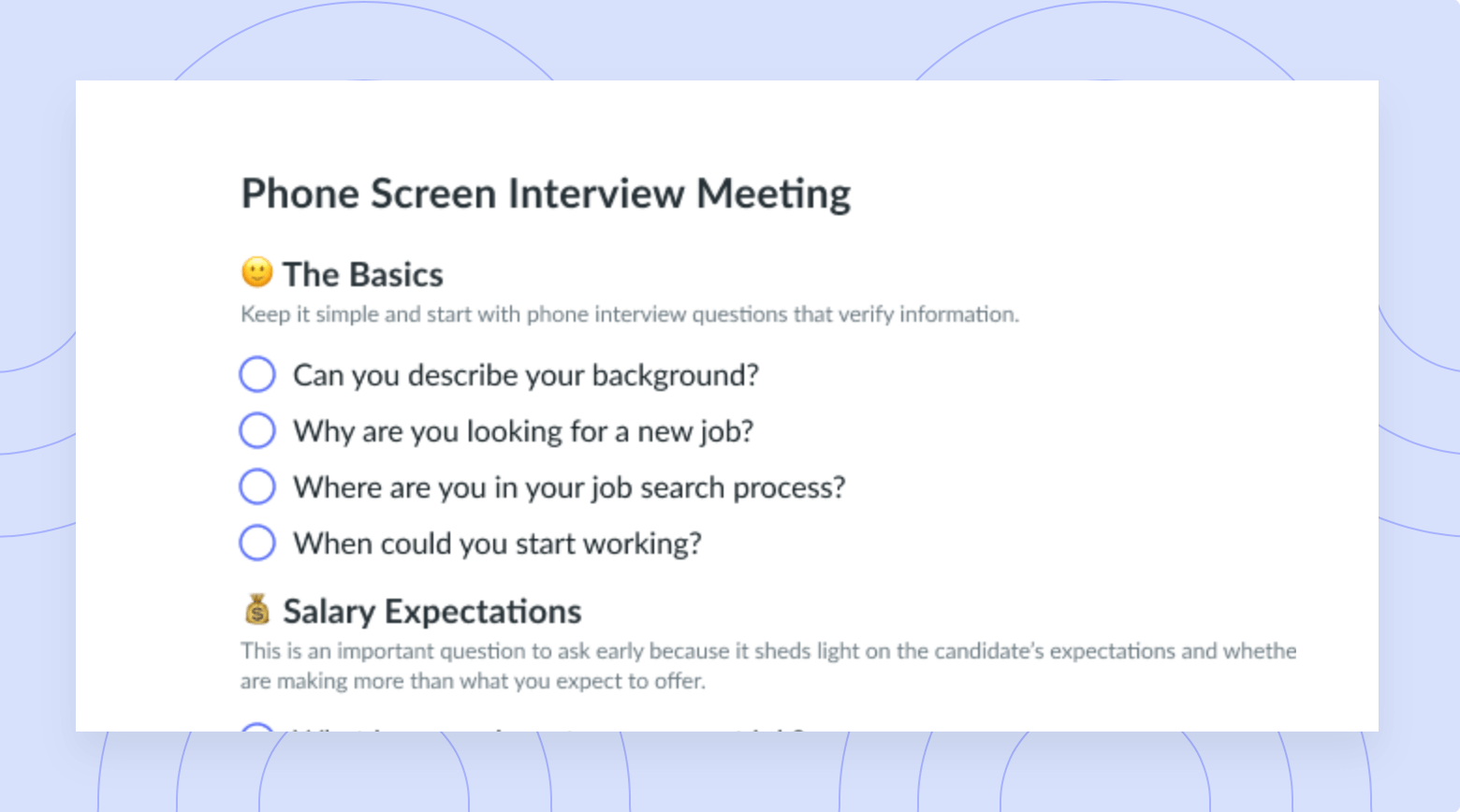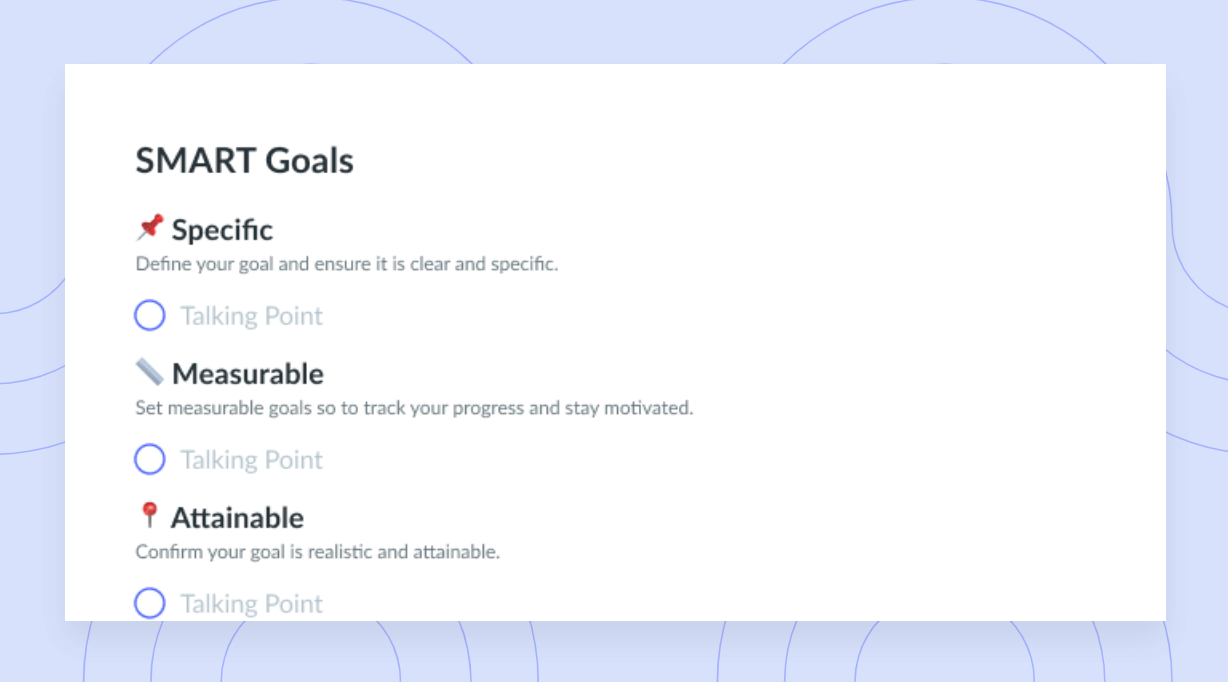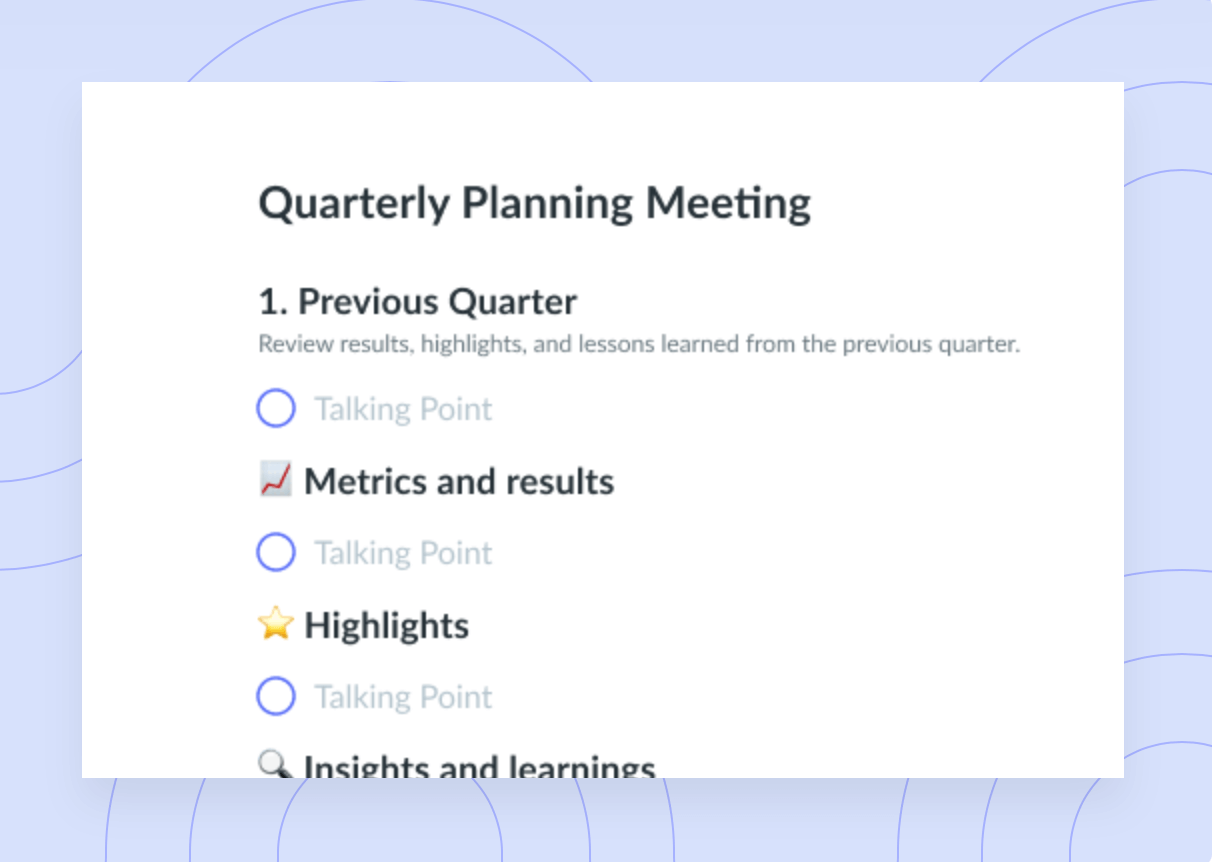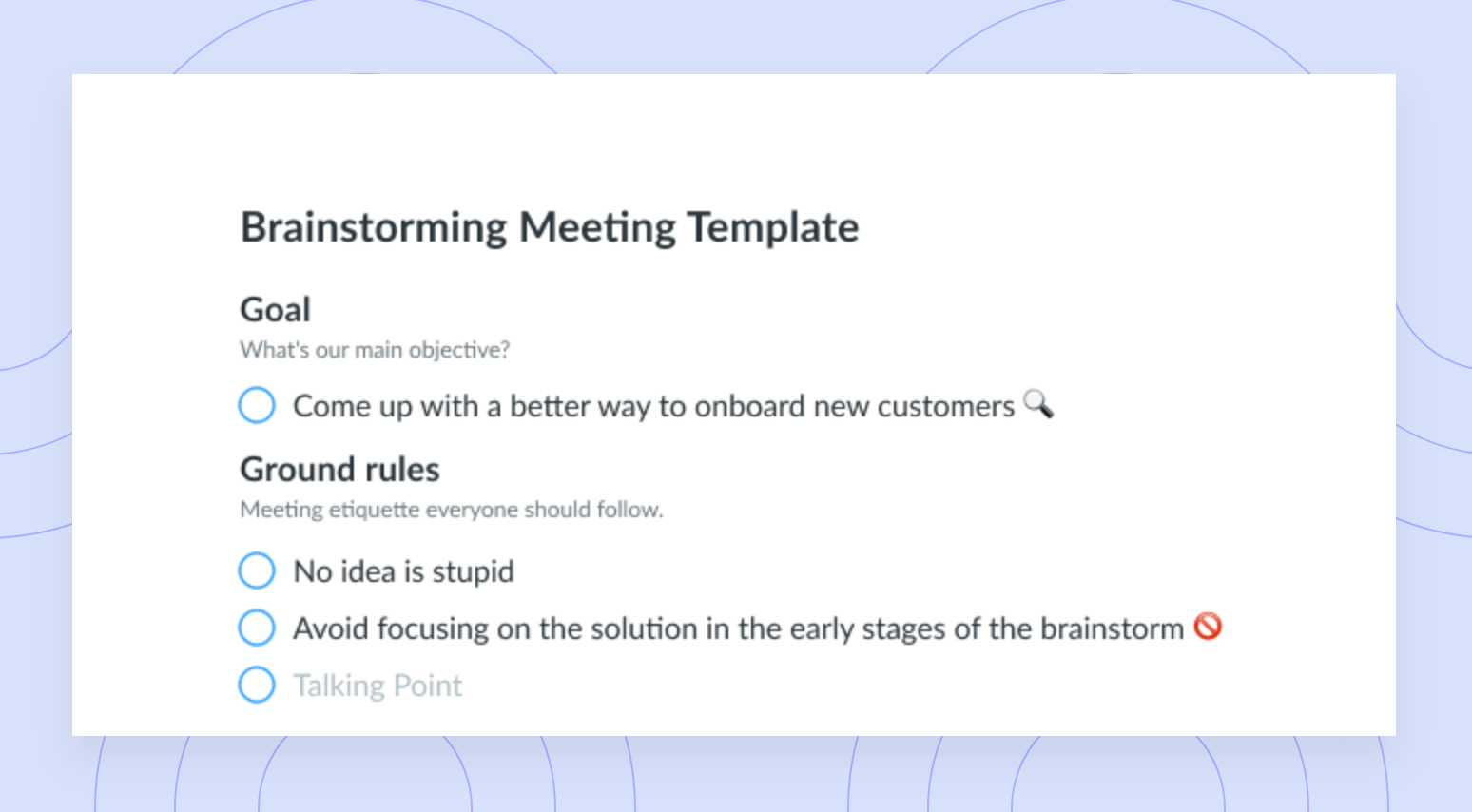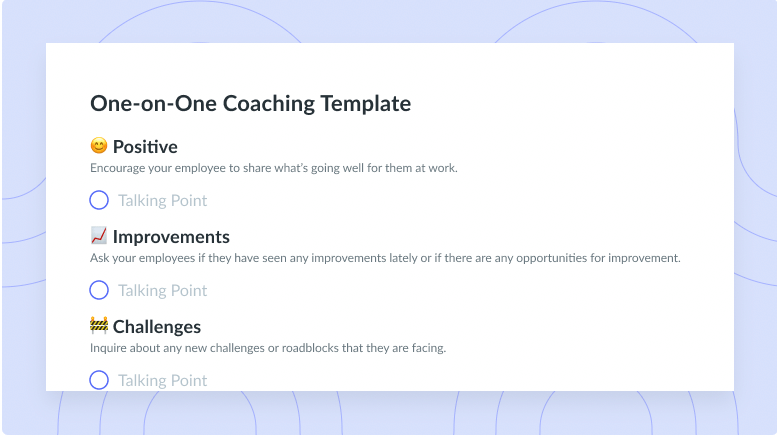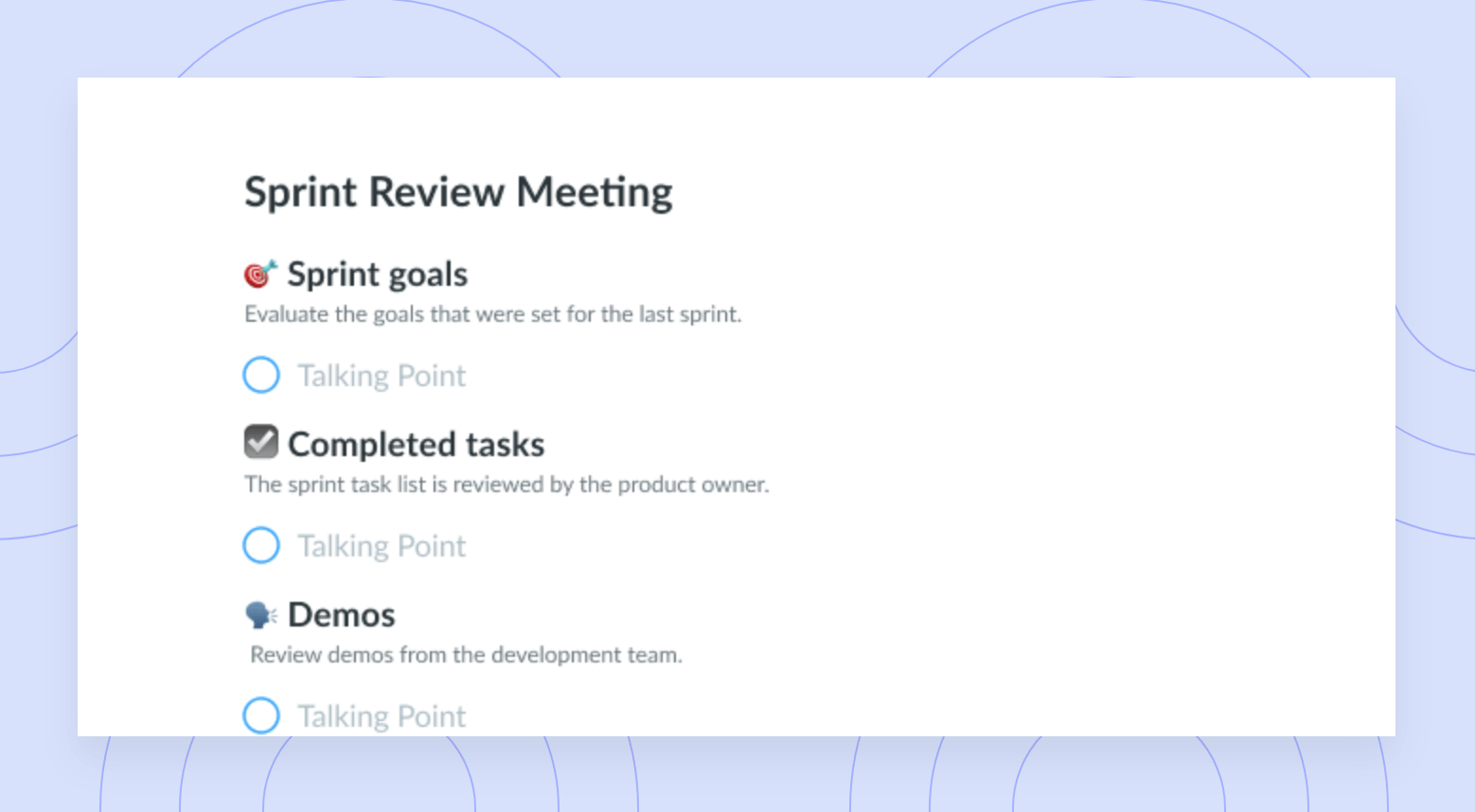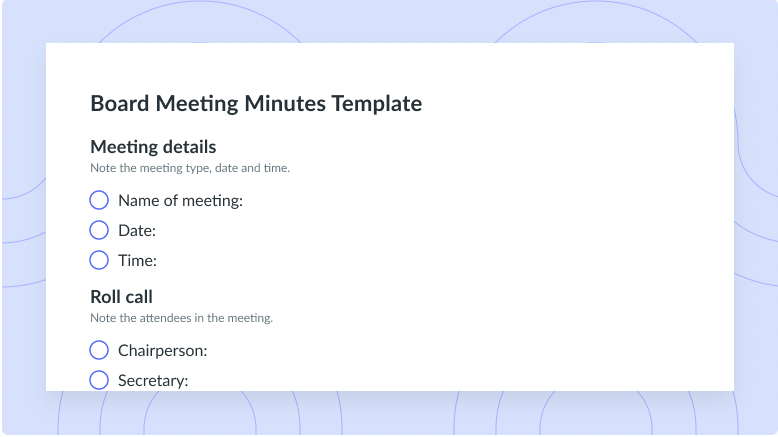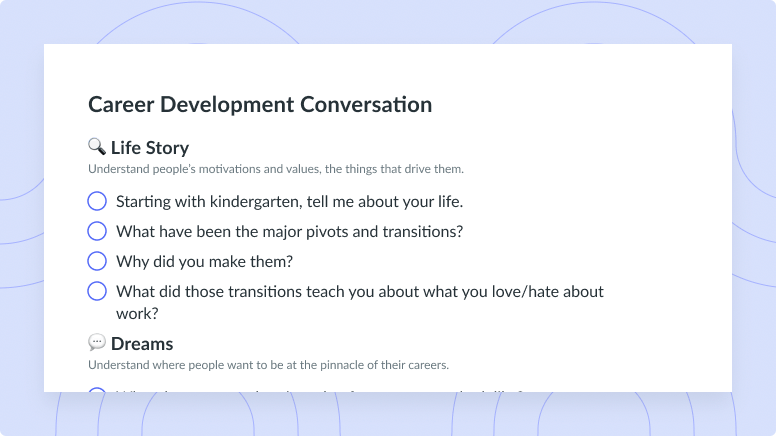22 Goals Software Engineers Can Set in 2024
Explore software engineering goals you and your team can set to improve your productivity. Plus, check out our free meeting templates for your next goal-setting session!
Software engineers are jacks of all trades. One day, they may be programming testable, efficient code, and another, they could be evaluating and testing new software programs. The role of a software engineer can be demanding and incredibly diverse, which is why it’s so important for these professionals to set realistic goals and improve their problem-solving skills!
Keep reading to explore the role of software engineers, view why it’s important to have clear goals as an engineer, and see 22 software developer performance goals examples you can set today.
- The role and responsibilities of a software engineer
- Why all software engineers should have goals
- 22 goals for software engineers
The role and responsibilities of a software engineer
Software engineers design and develop everything from business applications to computer games. These professionals combine computer science and engineering principles to develop software solutions for a wide range of consumers and businesses. Solutions may include web and desktop applications, mobile apps, robots, operating systems, networks, and more. Above all else, software engineers use their technical skills and creativity to solve new and ongoing business problems.

Your meeting problem, solved.
Fellow is the only all-in-one meeting solution that combines AI, behavior-driving features, and seamless integrations so you can have fewer, more effective meetings and 1-on-1s.

Why all software engineers should have goals
Goal setting can help software engineers grow in their role—whether they want to ascend to the next level at their company or simply improve their technical skills—and can help software engineers become effective leaders and allow them to discover their full potential. Additionally, setting effective goals can help software engineers stay ahead of the competition, better manage their time, and become more confident professionals overall.
22 goals for software engineers
- Achieve professional certification
- Master a new programming language
- Acquire knowledge of cutting-edge technology
- Learn to be a better project manager
- Design architectural features for new projects
- Optimize application performance
- Specialize in a specific technology or language
- Refactor legacy code
- Write a technical article
- Collaborate with cross-functional teams
- Aim for a career promotion
- Enhance interpersonal and communication skills
- Expand professional networks
- Arrange a skip-level one-on-one meeting
- Implement agile or scrum methodologies
- Contribute to open-source projects
- Develop cloud computing skills
- Automate routine tasks
- Participate in hackathons or coding challenges
- Develop mobile applications
- Learn cybersecurity best practices
- Mentor junior developers
1Achieve professional certification
By becoming certified in subjects related to software engineering, you can show your current and future employees that you’re serious about developing your skills. If you’re a student engineer, keep working towards your software engineering designation before tackling other professional designations.
2Master a new programming language
Learning a new programming language will encourage you to approach problems from a different perspective. Set a goal to master a new programming language to become a more versatile engineer and a better problem solver.
3Acquire knowledge of cutting-edge technology
With so many digital tools on the market today, you can get ahead of your competition by dedicating some free time to learning how to use new software. Complete a course or do your own research to develop your technology skills today.
4Learn to be a better project manager
Project management is the act of organizing, planning, and managing a project to achieve a defined outcome. Set a goal to improve your project management skills so you can be the best teammate possible the next time you need to lead a group in accomplishing software-related objectives.
5Design architectural features for new projects
While you may have studied architecture, you’ll only gain true experience when you design it yourself. Dedicate time to learn about the process for identifying the subsystems that make up the systems you work with and the frameworks you may work with in the future.
6Optimize application performance
Set a goal to optimize your code and enhance the user experience of your applications. Spend time monitoring the transactions for all users to identify patterns of performance abnormalities. If possible, seek out feedback from end users to ensure your customers, partners, and employees are happy with the app’s usability.
7Specialize in a specific technology or language
Aim to become an expert in a specific area. Specializing in a few software or languages will enable you to innovate and become a main contributor to certain projects. Ask a leader you admire what specializations could make you a more valuable team member and help you progress in your career, and go from there.
8Refactor legacy code
Update the structure and architecture of your team’s outdated code to refresh and modernize your systems. Doing so will help your company proactively mitigate potential business risks and ensure your code functions and performs how it needs to. Begin by extracting logic code to maintain an application’s existing functions and behaviors, and then rewrite the code using new frameworks and a simpler approach.
9Write a technical article
Writing skills are important for software engineers too. Select a topic, define your target audience, conduct research, and write an introduction that grabs the reader’s attention and summarizes what the article will cover. Use clear and concise language throughout the piece to convey your complex ideas. Have a trusted colleague or mentor review your work and offer their feedback once you’re finished.
10Collaborate with cross-functional teams
A cross-functional team refers to a group of employees with varying expertise who come together to achieve a common goal. Working with colleagues in other areas of your company or fields besides software engineering can improve your understanding of these areas, enhance your problem-solving skills, and even help you make better decisions in the future.
11Aim for a career promotion
If you want to ascend to the next level at your company or search for a new position at another organization, set the objective of determining your next career move. Chat with a trusted mentor or your manager about what skills you must develop to make it to the next level. This objective may involve refining your resume or taking on more responsibility in your current position to show that you’re prepared for new opportunities.
12Enhance interpersonal and communication skills
There are many ways you can improve your interpersonal and communication skills. These may include practicing your active listening skills, improving your body language during conversations, proofreading all written communications before sending them, and maintaining an overall positive attitude at work.
13Expand professional networks
Your network is your net worth. Set a goal to attend an in-person or virtual networking event to meet other professionals in your industry. Expanding your network can help you discover new job opportunities, gain career advice, and increase your chances of gaining new positions.
14Arrange a skip-level one-on-one meeting
A skip-level meeting is a meeting with your manager’s manager. These meetings are great for learning about what it’s like working at a senior level within a company, and they can offer you unfiltered access to information on what’s happening within your organization.

15Implement agile or scrum methodologies
If you think your team could benefit from more face-to-face interactions or stand-up meetings, set a goal to implement agile or scrum methodologies and practices into your team’s work.
16Contribute to open-source projects
Gain experience contributing to open-source projects by browsing project issue trackers on platforms like GitHub. This can help you improve your coding skills and build out your portfolio.
17Develop cloud computing skills
Cloud computing skills include technical skills like HTML and computing fundamentals, data analysis, data security, project management, and more. Developing these skills can help you differentiate yourself in the job market, so set a goal to obtain one of the many cloud-computing certifications and credentials.
18Automate routine tasks
As a software engineer, you can save time by automating common development tasks such as compiling, linting, and testing using task runners. Additionally, set an objective to automate any routine administrative tasks like data entry that will make you a more efficient employee overall.
19Participate in hackathons or coding challenges
A hackathon is an event where individuals and teams engage in fast and collaborative engineering challenges over a short period such as 24 or 48 hours. These coding challenges are excellent ways to develop new and innovative ideas involving coding, software solutions, and technology.
20Develop mobile applications
If there’s a problem you think an application could solve, why not set a goal to build it yourself? Conduct market research, know your audience, decide on an operating system, and create a concept that you feel confident you can bring to life.
21Learn cybersecurity best practices
Stay up-to-date with cybersecurity tips and best practices to keep your team and business protected from cybersecurity attacks. Set a goal to review and update your hardware and software regularly and don’t forget to use a secure file-sharing solution to encrypt data.
22Mentor junior developers
Mentoring others is a great way to broaden your view and practice your feedback-giving skills. Mentor a junior developer to kickstart your professional development and help a colleague advance in their career.

Parting advice
There are plenty of goals that software engineers can set to improve their skills and make professional strides. The next time you feel stagnant in your role or need a change, use our list of 22 professional goals for software engineers to set new objectives for yourself. Before you know it, you’ll be ready to show off the new technical and soft skills you’ve developed to all your software engineering teammates.

